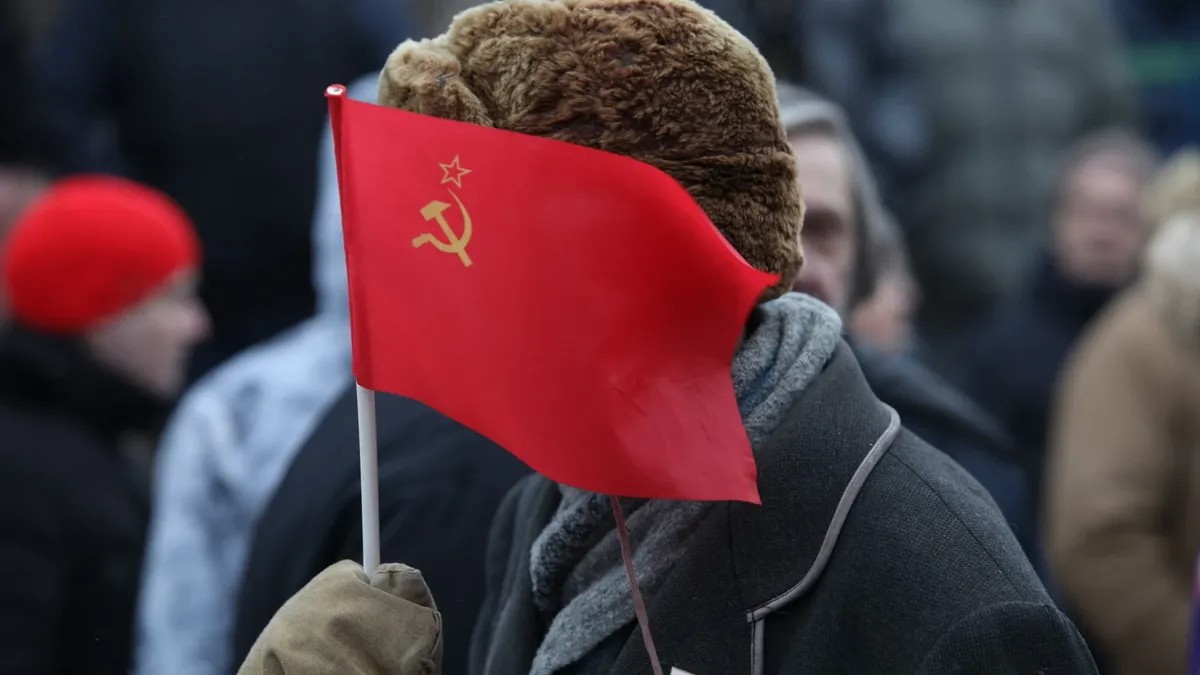
A communst party supporter. Photo by Vedomosti / TASS
Here what’s in store for you this week:
- We speak out against the Kremlin’s attempt to destroy the country’s last standing human rights defender Memorial;
- We explain how Russian communists, who have been Putin’s favorite ‘pocket opposition’ for two decades, are now face mass crackdown
- We report on Russian disabled people being left behind in the country’s COVID-19 vaccine rollout
- Plus, we interview a federal judge who decided to stand up against government pressure to convict innocent people and fabricate cases
Want to get the full story? Click the links below for full-length articles in Russian.
Kremlin’s Attack on Memorial, Explained
Russia is about to lose the oldest and most respected human rights defender. On November 11, Russian prosecutors filed a lawsuit to liquidate the human rights organization Memorial for alleged violations of Russia's "foreign agents" act. Established in the late 1980s, Memorial has documented political repression under the Soviet Union, building a database of the victims of Stalin's purges and the Gulag system. It became the stronghold for human rights monitoring in the collapsing civil society field during Putin's rule. The move to quash such a well-known NGO has elicited an outcry both within Russia and beyond.
NOBEL LAUREATES UNITE FOR MEMORIAL. Mikhail Gorbachev — 1990's winner — and Dmitri Muratov — 2021's winner and Novaya's Editor-in-Chief — have issued a joint statement condemning the decision of State prosecutors to launch liquidation proceedings against Memorial, one of Russia's best-known human rights groups. Gorbachev — who helped set up Novaya Gazeta in 1990 using his Nobel Peace Prize money, and Muratov paid homage to the "long history of Memorial, the actions of which have always been aimed at restoring historical justice, keeping the memory of the victims of repression alive, and preventing the same crimes from happening again now or in the future."
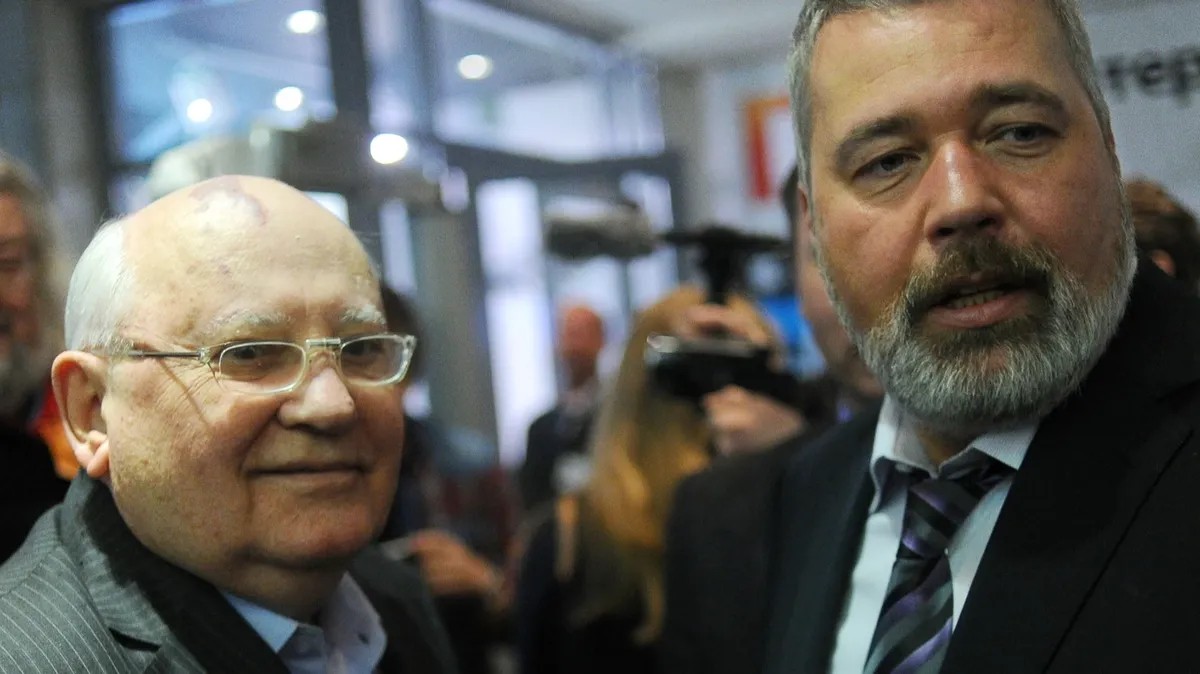
Mikhail Gorbachev and Dmitri Muratov both are Nobel Prize laureats
THE NOBEL LAUREATES CALLED FOR THE PROSECUTOR GENERAL TO "WITHDRAW THE CASE AND RESOLVE THE ISSUE OUTSIDE OF THE COURTS. We urge the court to postpone the date of the hearing on the claim's validity so that we can jointly resolve this issue that is so painful for our country." Gorbachev has regularly made headlines with his criticisms of the Russian political system under Putin, taking aim at what he sees as democratic backsliding, taking the country back to how it was before Perestroika — the moniker given to his reformist agenda. Muratov's contribution to the statement shows that he is not cowed by President Putin's warning that his Nobel prize would not protect him from the 'foreign agent' label.
GORBACHEV AND MURATOV WERE NOT THE ONLY PROMINENT FIGURES TO CONDEMN THE MOVE AGAINST MEMORIAL. We circulated an open solidarity letter that got signed by over a hundred prominent figures from around the globe. The statement decries the "unlawful persecution" of the rights group by the government. It states: "We call on the Russian authorities and the President of the Russian Federation to preserve the Memorial and to not hinder its employees from fulfilling a mission that is important not only for the citizens of Russia but for all of humanity." Comedian and actor Stephen Fry, the author John Maxwell Coetzee, and the playwright Tom Stoppard are among the signees. The latter added his own comment with the flare expected of an award-winning dramaturg:
"The collective memory of society is the best guarantee against repeating the worst pages of history. The attack on the International Memorial is an attack on memory. The question arises: who benefits from burying the past?"
TENS OF THOUSANDS SIGNED A GLOBAL PETITION IN DEFENSE OF MEMORIAL. A public Change.org letter now has nearly 85,000 signatures, too. "Their liquidation could lead to the closure of the most important historical, educational, and human rights projects. The liquidation of legal organizations and organizational structures might not completely destroy but will significantly limit the scope of legal activity of historians, educators, journalists, and human rights activists who work in the interest of Russia's civil society and whom the current hostile environment brings into active conflict with the realpolitik of the Russian state, and in practice, with the interests of the minority of Russian citizens who hold political power," the petition says.
WHY IT MATTERS. While it remains to be seen how sustained the response to Memorial's potential liquidation will be, international pressure has been known, albeit infrequently, to force the Kremlin's hand. The 2013 amnesty, which released the imprisoned members of punk protest group Pussy Riot, came on the heels of widespread international condemnation and campaigns for their release.
BACKSTORY. A 'foreign agent' concept first appeared in Russian legislation in 2012 as an amendment to Russia's nonprofit law. They stipulated that nonprofit organizations that receive foreign funding and participate in political activities must identify themselves as 'foreign agents.' But the definition of 'political activity' is very broad, meaning that it extends to a wide variety of organizations, including environmental or animal rights groups, that aren't engaged in explicitly political activity. Meanwhile, domestic funding in Russia is limited, and the Russian state wouldn't give grants to many of these organizations anyway due to their work's critical nature. As a result, these organizations are forced to seek support abroad and risk being labeled a 'foreign agent,' leaving them open to harassment and intimidation.
Read the open letter in full here.
The Kremlin’s Crackdown on Communists, Explained
The Communist Party of the Soviet Union was ruthless in its repression of political dissent. Now, in a modern twist of fate, the Communist Party of the Russian Federation (CPRF) finds itself on the receiving end of the government's ire. This week, our reporters Darya Kozlova, Valeriya Fedorenko, Isolde Drobina, Tatiana Britskaya, and Nadezhda Andreyeva unpack the recent Kremlin crackdown on the party and interview some of its deputies on how they perceive this unprecedented pressure.
WHAT DOES 'PRESSURE' MEAN EXACTLY? Arrests, fines, arbitrary interrogations, and threats of criminal cases are just some of the measures that local authorities have taken against the CPRF. In Sakhalin, the party has not — for the past year — received authorization for a single public event. In Sverdlovsk Oblast, CPRF activists have reported receiving fines of more than 100,000 roubles (over $1,000) for violating mask protocols. In Saratov oblast, local CPRF deputies have been harassed by anti-Communist protestors, to whom police have turned a blind eye.
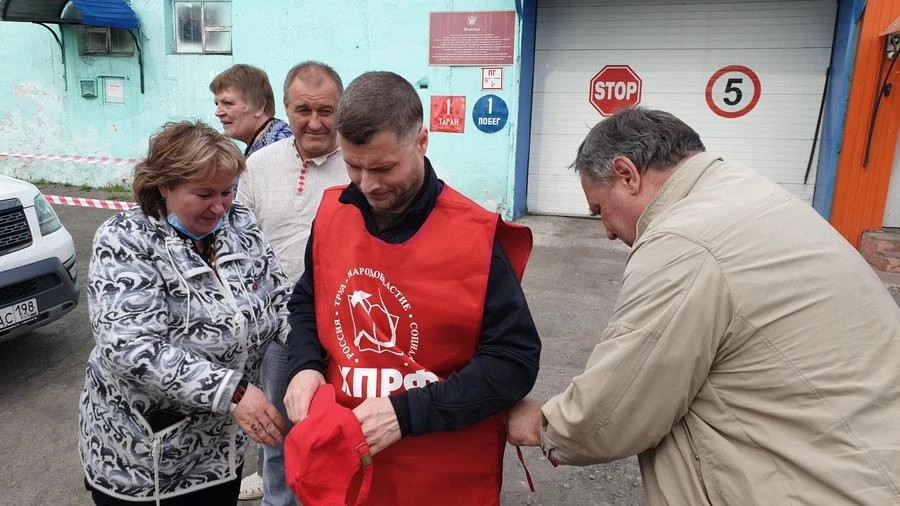
Photo: KPRF homesite
"SOME OF [OUR ACTIVISTS] HAVE BEEN DETAINED FOR TEN DAYS, SOME FOR TWENTY [...] Almost 600 thousand was taken from our Moscow City Duma deputy Yekaterina Engalycheva in the form of four fines. I believe that this is a financial robbery, and everything must be done to stop this outrage," says the party's leader Gennady Zyuganov. According to him, at least 106 party activists became the victims of the latest crackdown.
WHY NOW. Once part of the 'systemic opposition' — the moniker was given to the parties controlled by the Kremlin — the Communists have become increasingly real and vocal critics of Russia's political status quo, which the authorities see as a threat. The latest 2021 round of parliamentary elections was a huge success for Russian communists who capitalized on the desperation among Russian voters robbed of real choice. Many of them voted for the only 'alternative' the Kremlin allows to strip the ruling party of as many parliament seats as possible. Thus, the second-largest party in the country, CPRF, received +6% of additional votes compared to the 2016 elections. Russian communists have been publicly warning about rising Kremlin pressure since 2018 when the party backed a popular uprising against Putin's pension reform.
NOVAYA REPORTERS INTERVIEWED A RANGE OF CPRF REPRESENTATIVES, from State Duma deputies to local activists, on how they see the recent crackdown:
Pavel Tarasov
(Moscow City Duma deputy) to Novaya's Darya Kozlova
"It had never happened before that the police ambushed us, raided the apartments of our supporters. Not even criminals are treated this way."
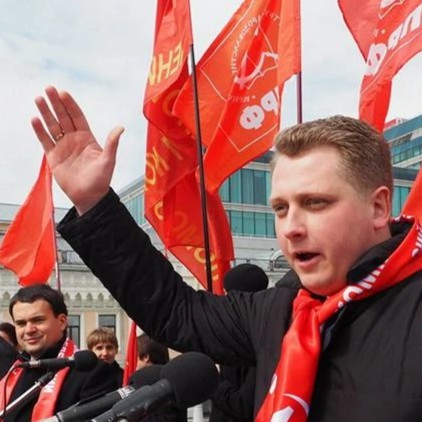
Aleksandr Ivachev
(Leader of the Sverdlovsk oblast CPRF branch) to Novaya's Isolde Drobina
"We have always lived in a tense and, let's say, uncomfortable environment. There is never a year when the prosecutor's office and deputies from United Russia have not filed lawsuits to remove mandates of CPRF representatives."
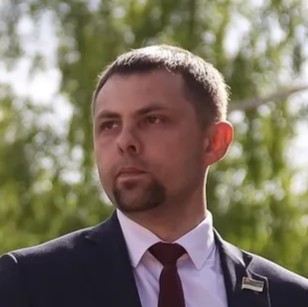
Oleg Mikhailov
(State Duma deputy for the Komi Republic) to Novaya's Tatiana Britskaya
"We have inflicted damage on the authorities in the elections and are continuing the attacking regime [...] Most recently, one of the local leaders, the communist deputy of the district council Aleksey Gromov, lost his job due to his political activities. They told him to stop, but he refused and was fired."
BACKSTORY. The Communist Party of the Russian Federation (CPRF) remained a powerful political force in Russia following the collapse of the Soviet Union. But recent four years marked the era of political ascendancy for Russian communists. The 2021 elections expanded CPRF's presence in the Kremlin-controlled parliament to nearly 13 percent of the State Duma seats. While smashing the structures of opposition politician Alexei Navalny, Russian authorities still seem not to fully understand how to deal with those filling the remaining void and lingering protest sentiments. By virtue of crushing oppositionist movements in the country, the Communist Party has become the second most popular. Today, the CPRF is an ultra-conservative neo-Stalinist political project that supports President Putin's foreign policy (including recognition of separatist Donetsk and Luhansk in Eastern Ukraine). Still, the party retains some independence voting on social issues such as pension reform.
Read the full article here.
Disabled Folks Left Behind by Vaccine Rollout
Across the world, we have seen how Covid-19 has caused immense risk to society’s most vulnerable. This week, we report on the obstacles faced by people with disabilities in Russia’s northern capital to getting vaccinated. Novaya’s Nina Petlyanova interviews Nadezhda Dormidontova — the mother of a 33-year-old Vladimir who suffers from spinal muscular atrophy — on what the failure of the city’s vaccine rollout means for her family.
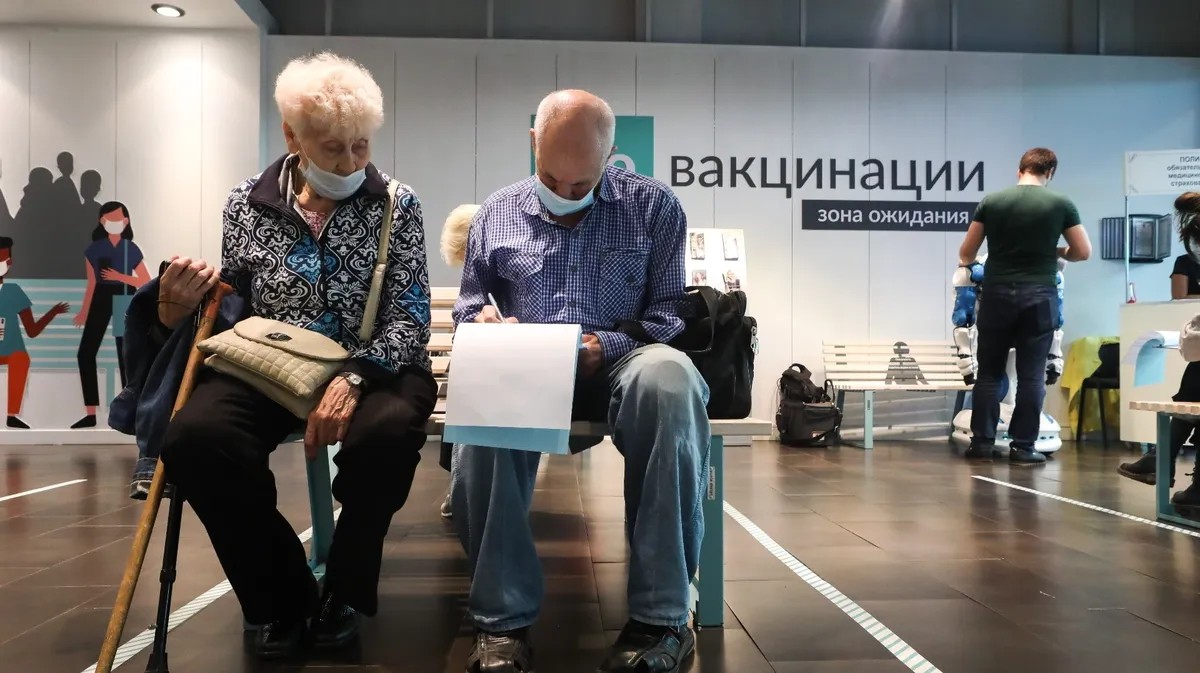
“THE WHOLE FAMILY UNDERSTANDS THAT FOR VOLODYA, GETTING SICK WITH CORONAVIRUS MEANS CERTAIN DEATH.” For his mother, Volodya’s muscular condition is the least of the family’s worries. “Now we are intimidated by another threat — Covid,” she tells Petlyanova. Despite his real and urgent need for the vaccine, it has been impossible for him to get one since his condition means that he cannot leave the house. “Since the beginning of September, I have been applying to the 37th polyclinic of the Central District of St. Petersburg”, says Nadezhda, “But they are only ready to offer the EpiVacCorona vaccine at home. And this vaccine, from what we know about it, does not provide any protection.” Private clinics have also turned the family down, stating that providing at-home vaccination could mean the revocation of their licenses.
MILLIONS CAN POTENTIALLY FACE THE SAME VACCINATION OBSTACLE. According to statistics, there are more than 700 thousand people with disabilities in St. Petersburg alone and over 12 million across the Russian Federation. Volodya’s family is the third publicly-known case of people with disabilities being unable to receive the vaccine in the city. But many similar reports surface across the country. The sole reason we don’t hear about such cases often enough is that overall vaccination rates in Russia are one of the lowest globally. For those few disabled Russians who seek at-home vaccination, the wait for the first dose can be months-long.
AUTHORITIES DENY THE PROBLEM. According to the city government, at-home vaccinations have been available to people with disabilities since April 2021. Official statistics show that, as of November 18, 6,955 people in St. Petersburg had received at-home vaccinations. The city’s health committee press secretary claims that stories like Volodya’s are “isolated cases.” At the same time, the committee’s head, Dmitry Lisovets, has stonewalled appeals from the city’s ombudsman demanding to know why people with disabilities have been denied at-home vaccinations.
BACKSTORY. Russia was the first country in the world to roll out a Covid-19 vaccine. But according to official statistics, only 37 percent of the country's population are fully vaccinated — one of the lowest rates on the continent. Russia's last remaining independent pollster Levada Center recently found that the vast majority of Russians are not willing to be immunized against COVID-19 and the overall vaccination campaign is considered a failure. This is a result of traditionally strong anti-vaxx sentiments in the country and widespread doubts about the quality of Russian-produced vaccines. According to our independent AI-powered COVID-19 tracker, over 640,000 Russians might have died from Covid-19. Official statistics say only 265,000 did. Our investigations have exposed the government "doctoring" both mortality and vaccination rates linked to Covid-19. There is also a high death rate among doctors and a general shortage of personnel in hospitals. Russian doctors are sacrificing everything to save people amid government attempts to silence them from speaking out.
Read Petlyanova’s full report here.
Bonus Round
This week, a Novaya Gazeta reader informed our editorial office of the persecution of a judge in the Chelyabinsk region. Our correspondent Isolde Drobina interviewed Dolgov, who lifts the lid on systemic pressures he has faced from the corrupt judicial system.
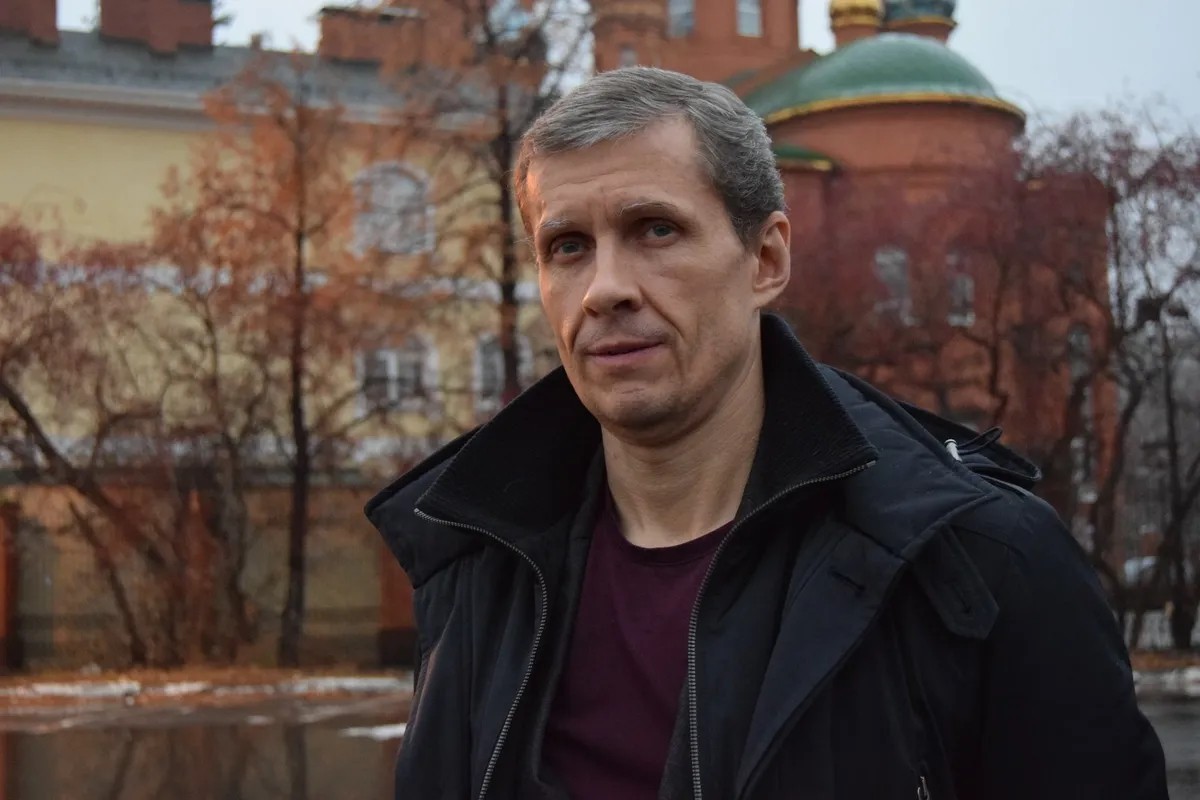
Anton Dolgov. Photo by Izolda Drobina / Novaya Gazeta
In 2018, prosecutors presented Dolgov with a case in which the defendant had purportedly abused and raped multiple young girls. Despite a total lack of evidence, the prosecutor assigned to the case called for a 15 year penal colony sentence. “It turns out”, Dolgov told Drobina, “that it is impossible for the prosecutor to comply with the unconditional requirement of the law and drop the charge when there are grounds for this. But it is quite possible to demand that an innocent person be sent to a colony.”
Disturbed, Dolgov investigated and found multiple instances of the Head of the District Investigative Committee’s signature being forged in order to convict innocent people. When Dolgov refused to pronounce the desired sentence, the case was transferred to another judge, who sentenced G. to 15 years in prison. The decision made enemies of his superiors, who told him that he had lost his “roof”, i.e. his protection.
From that moment on, all of Dolgov’s sentences have been canceled or changed. He is not completely pessimistic about the future, though, emphasising that it would be difficult for his enemies to fire him. His parting shot is darkly humorous: “I have good relations with my colleagues, but I don’t go to work parties. I do not want to sit at the same table with my bosses.”
This newsletter drop is written and edited by several journalists at the Novaya Gazeta newsroom. Please, support our work by promoting our newsletter with #RussiaExplained hashtag on social media.
To keep up with Novaya Gazeta’s reporting throughout the week, you can follow us on Facebook, Twitter, Instagram, and Telegram. Our video content is available on Youtube and don’t forget to visit our website for the latest stories in Russian.
The Novaya Gazeta Team